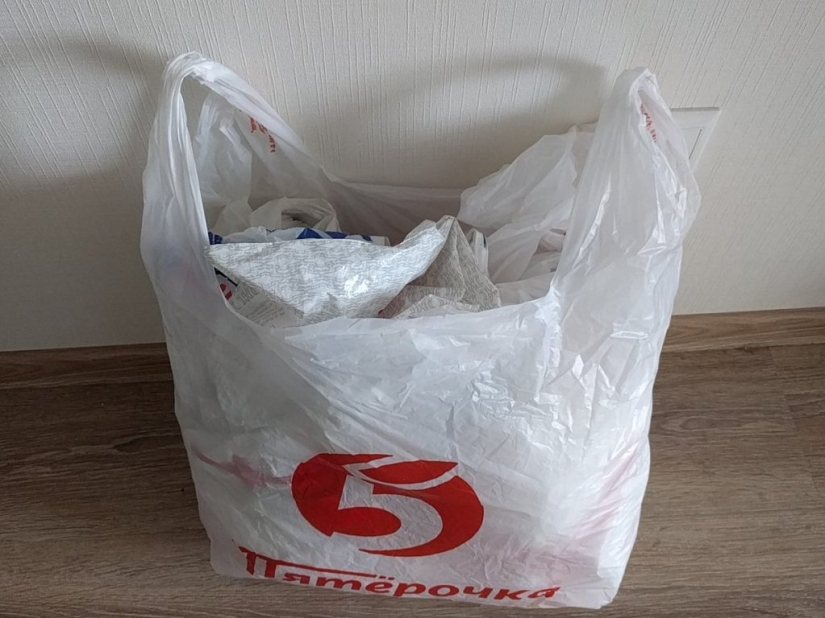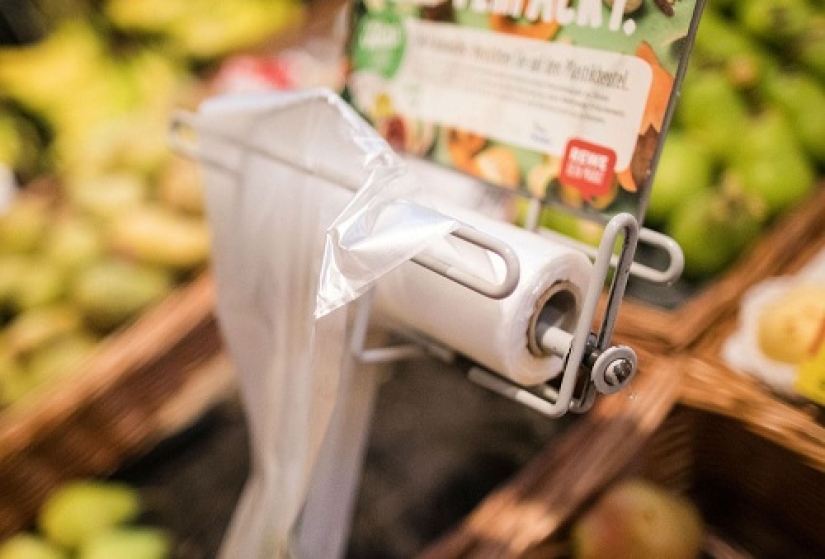Goodbye, package with packages! What awaits Russians after the adoption of the law banning plastic?
Categories: Ecology | Food and Drinks | Nature | Production | Society | World
By Pictolic https://mail.pictolic.com/article/goodbye-package-with-packages-what-awaits-russians-after-the-adoption-of-the-law-banning-plastic.htmlThe Rospotrebnadzor is preparing a bill providing for a gradual reduction in the production of plastic bags in Russia. Russians who do not have a package of packages at home do not have to worry – they will have time to replenish stocks of a strategic product, because they will reduce the production of demanded packaging in stages and slowly.

A gradual reduction in the production of plastic bags will result in a complete ban on the release and turnover of these packaging products throughout the territory of the Russian Federation. While Rospotrebnadzor has not specified when this will happen, but the fact that it will happen sooner or later is beyond the slightest doubt.
To journalists' questions regarding the new amendment to the law on industrial waste, Rospotrebnadzor answers that they are fully ready and expect to be sent to other departments for approval. The adoption of amendments is only a matter of time, since the Ministry of Natural Resources has already announced support for the initiative, and other organizations are also not against an important innovation.

Questions arose only in the Association of Retail Companies (ACORT). They believe that a decent replacement for plastic bags has not yet been proposed, it is too early to talk about banning these products. The association believes that consumers will experience serious inconvenience in stores and supermarkets if the new packaging that has replaced plastic turns out to be ineffective.
ACORT believes that the time has come to take care of establishing the production of alternative packaging materials, for example, special paper bags, textile bags or special varieties of biodegradable plastics.

There are other opinions from interested organizations. For example, the association "Clean Country" suggests not banning completely plastic bags, but simply raising the price for them. This will lead to the fact that Russians themselves will buy less of them and the situation with plastic waste will significantly improve.
As an example, in the "Clean Country" they cite the situation with packages in supermarkets, which were once given out to customers at the checkout for free. After they started taking money for them, the demand fell almost twice and many residents of the country prefer to go shopping with their bags and bags.

In June, Dmitry Kobylkin, the Minister of Ecology and Natural Resources, said that his department had developed a plan to reduce the use of plastic. According to experts, plastic production in Russia can be reduced painlessly by 10-20 percent per year. Then the Ministry of Natural Resources objected to the official, saying that such a rush could lead to an increase in unemployment, since many Russians are employed in the production and distribution of plastic.
In Mumbai, India, plastic packaging and tableware were completely banned this year, and violators face not only hefty fines, but also imprisonment.
Keywords: Disaster | Prohibition | Plastic | Russians | Supermarket | Packaging
Post News ArticleRecent articles

It's high time to admit that this whole hipster idea has gone too far. The concept has become so popular that even restaurants have ...

There is a perception that people only use 10% of their brain potential. But the heroes of our review, apparently, found a way to ...
Related articles

Prohibition started in 1920, when the so-called the Volstead act came into force. The 18th amendment to the U.S. Constitution ...

Seafood is traditionally considered very healthy. However, an experiment conducted in Belgium calls this into question. It turned ...

Human history knows two trends: the first is craving for sex and the second — the struggle with sex. Why do so — let him think ...

New Year's is a time to surprise and delight loved ones not only with gifts but also with a unique presentation of the holiday ...